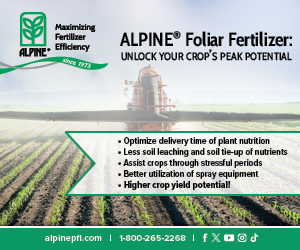One Ontario?
FROM THE CEO'S DESK

AS YOU ARE aware, Ontario now has a new government with a full mandate. Kathleen Wynne and her Ontario Liberal Party won a majority in the June 12 election, with the vast majority of their 58 seats located in the Greater Toronto Area. Across southern and eastern Ontario, the Progressive Conservative Party strongly held the rural vote, and the New Democratic Party picked up their share of seats across northern Ontario, the southwest, and in Niagara.
Looking at a map of these election results, the urban/rural divide is clearly evident. And yet, during her speech following the swearing in of her cabinet, Premier Wynne stated, “We are not rural Ontario or urban Ontario, suburban Ontario, small town Ontario, northern, southern, western, southwestern, eastern — but all of the above. We are one Ontario.”
It’s heartening to hear Premier Wynne promote this one Ontario concept; but we would be naïve to believe it based on her comments alone. As the saying goes — actions speak louder than words. If Premier Wynne is really the premier for all of Ontario, we would fully expect rural issues to be prominent on her agenda. However, it’s going to be a major challenge to gain the attention we need given that only a few of her cabinet ministers have a rural connection and the rest will have to base their decisions and priorities on what would be best for the urban constituents who voted them into office.
So the question becomes, how do you bridge the urban/rural divide? If I was providing counsel to the premier, I would suggest she think outside the box — or in this case — outside her caucus and appoint someone from rural Ontario, that isn’t elected as an MPP, to the role of minister of rural affairs. This alternative has worked in other jurisdictions, including at the federal level, when they didn’t have an appropriate level of regional representation elected to their government. A ministry separate from agriculture and food (as we had during this past year) led by a strong rural voice would be one way of bringing more rural issues to the cabinet table. No matter what the political landscape is at Queen’s Park, the rural constituent deserves recognition in this government.
Premier Wynne has already acknowledged the importance of agriculture in this province. By making herself the minister of agriculture and food in the previous cabinet, she gained a better understanding of the issues we are facing with the Risk Management Program, pollinator health, research investments, and value-added domestic processing opportunities.
During the election campaign, we were able to reiterate the importance of these issues through our Tractor Cab Telephone Town Halls. Jeff Leal, the new minister of agriculture, food and rural affairs, participated on behalf of the Liberal Party, and we were pleased to hear him reiterate their commitment to following a science and evidence-based approach to the issue of pollinator health. So while we were disappointed to hear via media shortly thereafter of their plans to restrict the use of neonicotinoids without any consultation with us, we have since had further discussions with the minister and his office which have given us an indication that this issue would be thoroughly discussed before any changes are made to current access to seed treatment. This is an example of how an additional voice is needed to ensure rural and agricultural issues are properly understood so that appropriate action is taken.
We look forward to working with Minister Leal to grow the Ontario grains and oilseeds sector and we hope Premier Wynne’s commitment to ‘one Ontario’ works to close the urban/ rural divide. •

















